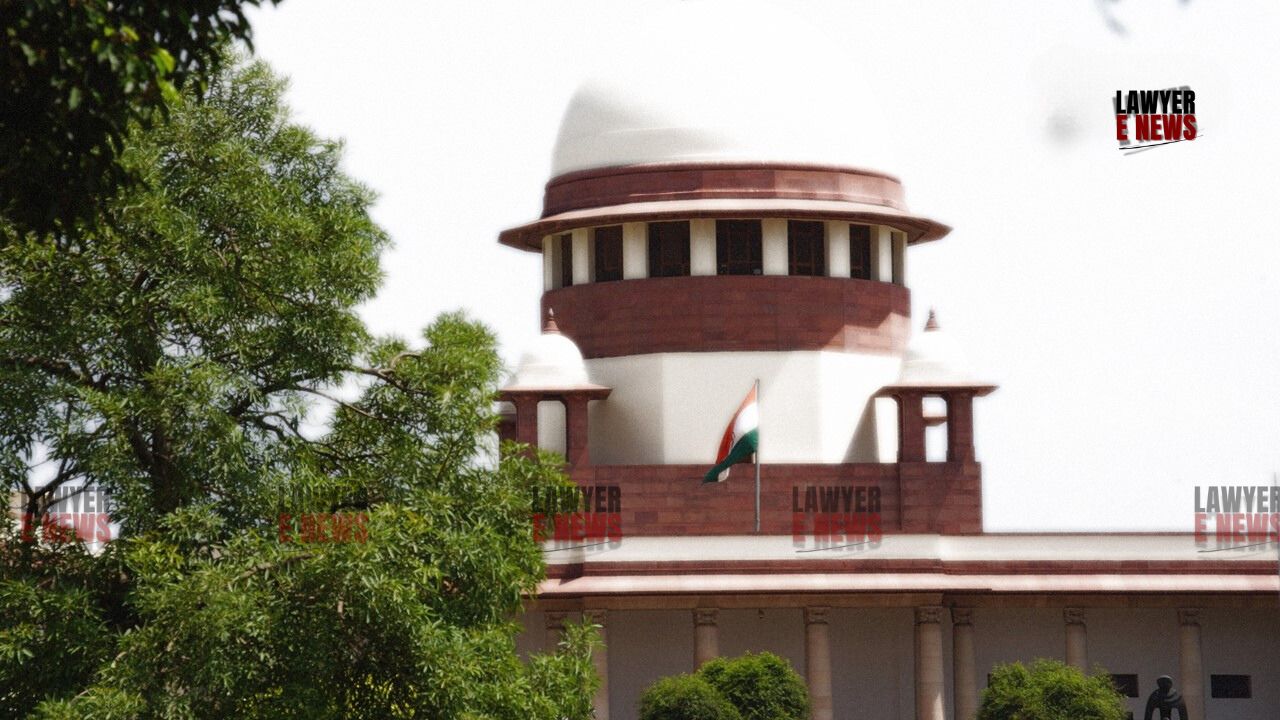-
by Admin
15 February 2026 5:01 PM



Supreme Court of India set aside the conviction of the appellant under Sections 294(b), 341, and 302 of the Indian Penal Code (IPC), observing that the conviction based solely on the testimony of an interested witness, which had already been disbelieved for the co-accused, was legally unsustainable. The Bench, comprising Justice B.R. Gavai and Justice K.V. Viswanathan, quashed the High Court’s decision and acquitted the appellant of all charges.
"Testimony of an Interested Witness Must Be Scrutinized with Greater Caution": Supreme Court Highlights Legal Standard for Sole Eyewitness Reliance
The Supreme Court emphasized that while the testimony of a sole witness can form the basis of a conviction, it must be free from contradictions and corroborated by other evidence. The Court held:
"When the High Court comes to a conclusion that it is difficult to believe that the sole eyewitness could have witnessed the incident in the manner narrated, granting benefit of doubt to some accused while convicting another based on the same testimony is impermissible and unsustainable in law."
The case revolved around the conviction of the appellant, George, for the alleged murder of Praveen Kumar (the deceased) on May 16, 2015. The High Court of Madras had upheld the trial court's judgment convicting George under Sections 294(b), 341, and 302 IPC based on the sole testimony of the deceased’s father, Kovilraj (PW-1). However, the High Court had acquitted the co-accused (Accused Nos. 2 and 3) based on the same testimony, citing doubts about its reliability.
The Supreme Court’s decision underscores the principle that selective reliance on a single witness’s inconsistent testimony violates the rule of prudence and fairness in criminal trials. It further clarified that recovery of a weapon from an open place without corroboration cannot form the basis for a conviction.
The case arose from the murder of Praveen Kumar during a church festival in Ananthapuram, Tamil Nadu. According to the prosecution, George (the appellant) and two others allegedly attacked the deceased after a verbal altercation stemming from prior disputes related to a Diocese Election. The appellant was accused of fatally stabbing the deceased with a knife. Kovilraj (PW-1), the deceased’s father, was the sole eyewitness who filed the FIR and identified the accused.
The trial court convicted George under Sections 294(b), 341, 302, and 506(ii) IPC, relying primarily on PW-1’s testimony and the recovery of the weapon. The other two co-accused were also convicted but received lesser sentences.
On appeal, the Madurai Bench of the Madras High Court acquitted the appellant under Section 506(ii) IPC but upheld the conviction under the remaining sections. The court, however, acquitted the co-accused (Accused Nos. 2 and 3), finding the testimony of PW-1 unreliable in proving their involvement.
Reliance on Sole Testimony of an Interested Witness:
The Supreme Court addressed the inconsistency in the High Court's approach. While the High Court disbelieved PW-1’s testimony for the co-accused due to improbabilities and contradictions, it relied on the same testimony to convict the appellant. The Court held this to be impermissible, stating:
“Conviction based solely on the uncorroborated testimony of an interested witness, particularly when the same testimony is disbelieved for other accused, cannot be sustained.”
Recovery of Weapon from Open Place:
The knife allegedly used in the crime was recovered based on the appellant’s confession. However, the Court noted that the recovery was made from an open place accessible to the public, rendering it insufficient to conclusively link the appellant to the crime.
Principle of “Falsus in Uno, Falsus in Omnibus” Not Applicable:
The Court reiterated that the principle of falsus in uno, falsus in omnibus (false in one thing, false in everything) does not apply in Indian criminal jurisprudence. However, it emphasized that evidence must be consistent and reliable for conviction:
“While a conviction can be based on sole testimony, it must inspire confidence and be free from contradictions or improbabilities.”
As PW-1 was the deceased’s father, the Court emphasized the need for greater scrutiny of his testimony to rule out bias. It found that his statement lacked corroboration and contained inconsistencies regarding the roles of the accused.
The Supreme Court concluded that the High Court’s findings were based on conjectures and surmises rather than credible evidence. It highlighted the following key points:
The Court noted that the High Court itself had expressed doubts about PW-1’s ability to witness the incident from 300 meters away but failed to apply the same reasoning to the appellant.
The absence of corroboration, particularly from independent witnesses, weakened the prosecution’s case. The Court held that a conviction could not be sustained on the basis of such doubtful evidence.
The recovery of the knife from an open area accessible to the public could not substantiate the appellant’s guilt beyond reasonable doubt.
The Court observed: “Selective reliance on the testimony of PW-1 for convicting the appellant while granting benefit of doubt to the co-accused is legally untenable.”
The Supreme Court quashed the High Court's judgment and acquitted the appellant of all charges under Sections 294(b), 341, and 302 IPC. It directed the immediate release of the appellant unless he was required in connection with any other case.
The judgment reaffirms the fundamental principles of criminal justice, emphasizing the need for consistency in evaluating evidence and the greater scrutiny required for testimony from interested witnesses. By acquitting the appellant, the Court has reiterated that the burden of proof in criminal cases rests firmly on the prosecution, and doubts must invariably benefit the accused.
Date of Decision: December 13, 2024
